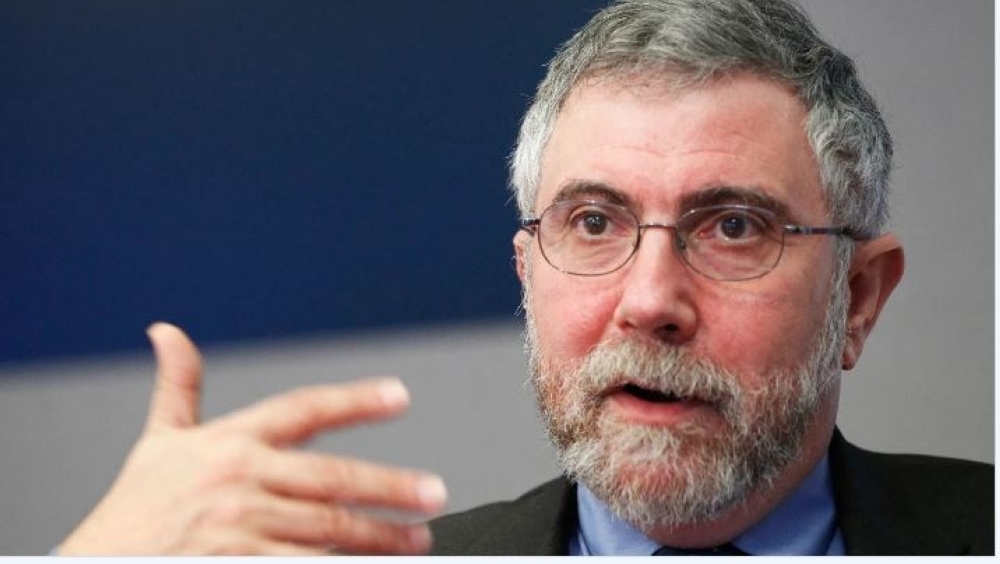

Despite the astonishingly effective fight that Ukraine has put up against invading forces, most military experts seem to believe that Russia’s sheer advantage in firepower will eventually prevail.
Having no relevant expertise, I see no reason to question their judgment.
Still, it’s clear that Vladimir Putin made a huge miscalculation. Russia began the war with a dash for Kyiv and Kharkiv by small, lightly armed forces, obviously expecting to achieve a quick victory as the defenders’ resistance collapsed. Instead, the initial attack was repelled, and the follow-up with tanks and artillery has been bogged down — in some cases literally, because it’s still mud season in much of Ukraine.
And that wasn’t his only miscalculation. Putin evidently believed that Russia could easily weather the economic fallout from his war. Oh, the West might slap on a few sanctions, but Europe needed Russian gas and oil, and he had built up a huge war chest of foreign currency reserves that was supposed to tide him over until things settled down.
His political judgment wasn’t entirely wrong. Western economic sanctions have conspicuously and pointedly exempted sales of fossil fuels, which make up most Russian exports. Instead, the sanctions have mainly been financial, excluding major Russian banks from the international payments system and freezing the assets of the Russian central bank — in effect, impounding a large fraction of Putin’s vaunted war chest.
How much does this matter? Historically, economic sanctions have tended to be porous: Countries find workarounds, greatly reducing their effectiveness.
But a funny thing has happened in this case. So far, economic pressure against Russia appears to be highly effective, crimping Russian trade even in goods that haven’t officially been placed under sanctions. The financial restrictions that have already been imposed have made transactions with Russia — even the purchase of oil — difficult; fears of future sanctions, plus the general sense that any Western institutions perceived as helping the Putin regime will face harsh treatment from regulators, have led to widespread self-sanctioning, cutting off even trade that is formally permitted.
We don’t know yet how this plays out, but if we see the kinds of mass civilian casualties and reign of terror that seem all too likely in the weeks ahead, the effect may be to largely isolate Russia from the rest of the world economy.
Economists have a rather arcane term for this kind of isolation: “autarky.” And it’s likely to be extremely damaging.
You might think that autarky is just a strong form of protectionism, which also tends to reduce trade. But it’s actually a lot worse.
The dirty little secret of international economics is that while economists love to sing the praises of free trade, the economic costs of tariffs — even fairly high tariffs — tend to be modest. Why? Because the private sector responds to tariffs by cutting off only the least essential imports. Impose, say, a 20 per cent tariff on imports, and we will stop importing only goods that can be produced at home at a modestly higher cost or for which there are reasonably good domestic substitutes. If an imported good is really needed — for example, if it is a crucial input for manufacturing that we can’t quickly start making here — companies will simply pay the tariff and continue buying abroad.
If events cut off a large fraction of a nation’s international trade, however, that kind of prioritisation won’t be possible. The domestic economy will lose access not just to cheap stuff but also to goods it has a very hard time doing without.
Do we have historical examples of what happens when a trading nation is forced into autarky? Not many, precisely because it’s such an extreme event. You could say that something like this happened to Japan during World War II, especially after America captured Saipan and Guam in 1944. This put the US submarine bases near Japan’s most crucial shipping routes and airfields close enough to bomb its ports, effectively isolating Japan’s economy from the rest of the world. Sure enough, Japan’s war economy imploded.
But what about autarky in a nation that wasn’t under direct military assault? Well, there’s a surprising — and surprisingly old — example from US history.
America wasn’t a direct participant in the Napoleonic wars, a huge conflict that, among other things, led Britain to accumulate a remarkable amount of government debt.
But America was hardly immune to the effects of those wars, especially because both sides engaged in economic warfare, trying to cripple their opponent with economic blockades that also damaged US commerce. Britain was also in the habit of stopping US commercial ships and impressing their sailors — that is, kidnapping them and forcing them to serve in the British navy.
-
This column was originally published in https://www.nytimes.com/2022/03/04/opinion/russia-ukraine-sanctions-economy.html
Oman Observer is now on the WhatsApp channel. Click here



